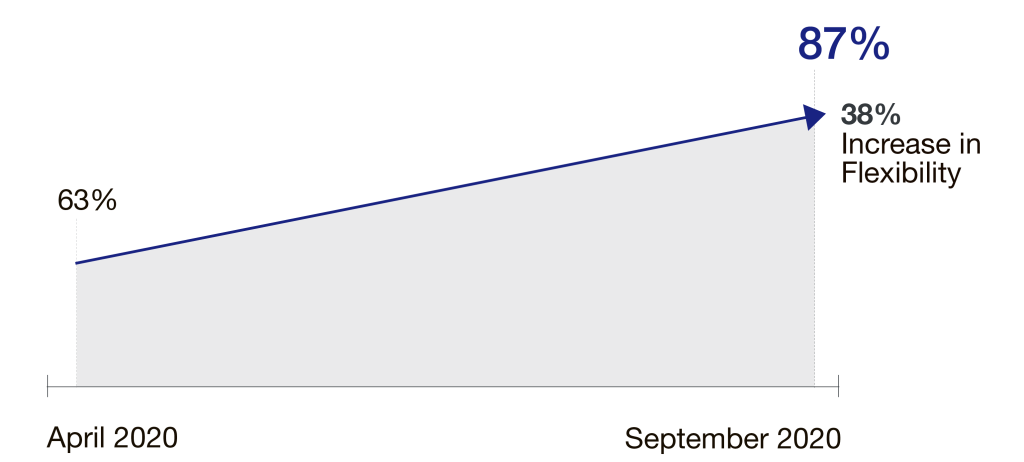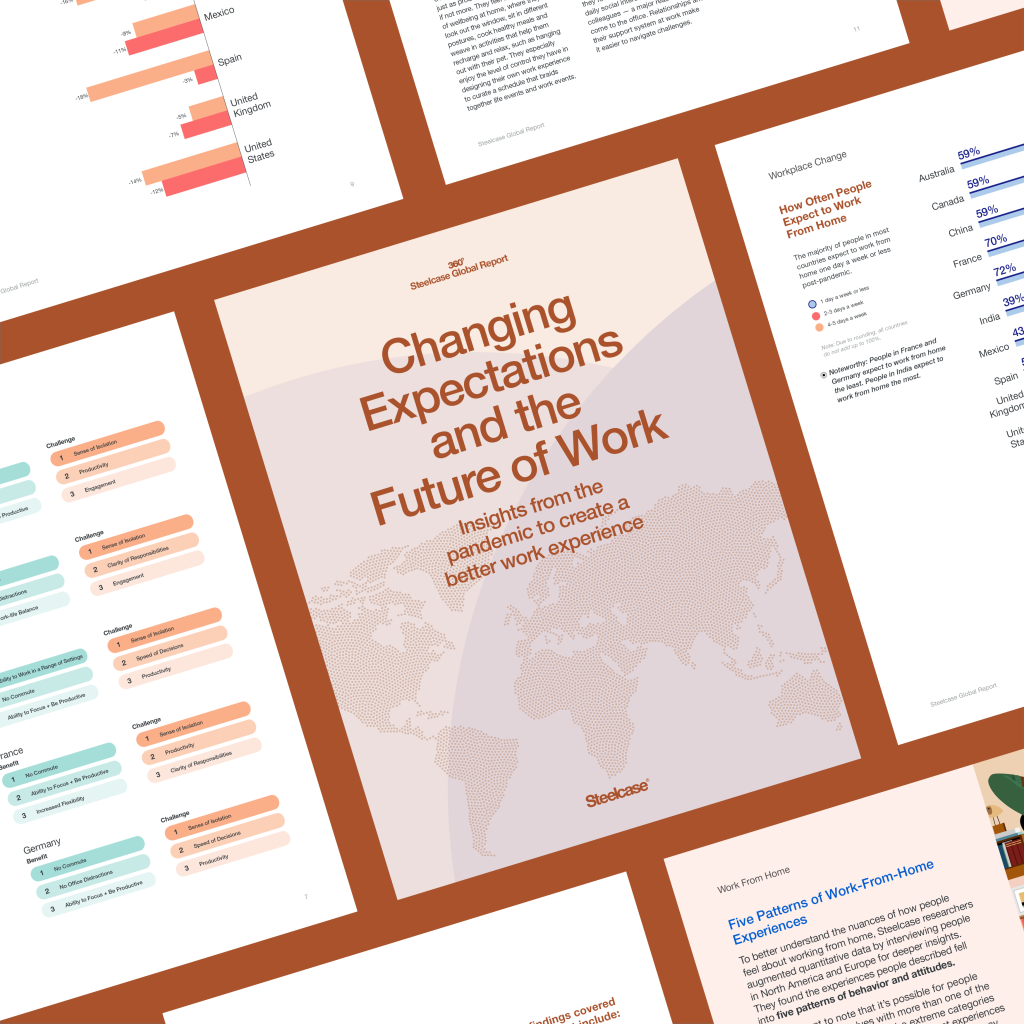While some headlines suggest the office will go away as people embrace working from home almost exclusively, the research identifies a more nuanced, hybrid future. Most people expect to work in the office most of the time, but they also expect greater flexibility from their organizations going forward.
A More Flexible Approach to Work
The global experiment in working from home has shown it can be part of a viable work policy, but it requires each organization to consider its own culture, processes, technology infrastructure and real estate strategies.
After spending months working from home, people expect to be allowed to continue in some capacity. How often they expect to do it differs significantly, which means leaders need to consider what policy is right for individuals, teams and the organization overall.
The majority of people say they expect to spend more time working in the office than at home and do not expect to work at home every day. In most countries, the majority say they expect to work from home one day a week or less.
People in France and Germany, which have strong office-based work cultures, are least likely to expect to work from home. People in India and Mexico, on the other hand, expect to work from home more frequently. A word of caution to leaders in those countries: Both countries experienced significant productivity and engagement drops the longer people who were dissatisfied working from home did so, indicating the need for careful consideration of what work-from-home policy is best.
The majority of people say they expect to spend more time working in the office than at home and do not expect to work at home every day.
How Often People Expect to Work From Home
The majority of people in most countries expect to work from home one day a week or less post-pandemic.
Leaders Anticipate More Flexibility
As people expect working from home to be an option, more organizations are listening and responding. Early in the pandemic, many leaders did not see a need to change their policies, but now 87% of leaders around the world say they expect they will allow more flexibility about where, when and how people work — which is a 38% increase from April 2020. More companies in more countries are allowing for the increase of flexible work policies.

Leaders Expect More Flexible Work Policies
Responses indicate growth in the number of leaders who expect employees will have more choice and control to work from home or elsewhere post-pandemic.

The Emerging Hybrid Model
The global experiment in working from home is shifting to become an experiment in hybrid work. As organizations consider the right approach for their people and their culture, predictions that people will work exclusively from home are being passed over for more flexible options.
Nearly a quarter of all businesses will continue to work in the office as the primary destination, and the majority of organizations will take a hybrid approach to work, in which employees work from both home and the office.
In fact, the number of organizations that expect people will work from home exclusively only increased 2% globally since the beginning of the pandemic. Nearly a quarter of all businesses will continue to work in the office as the primary destination, and the majority of organizations will take a hybrid approach to work, in which employees work from home or a third place, and the office.Some organizations are considering a range of options beyond their primary offices or campuses. Given that the lack of commute is the number one reason people like working from home, organizations are beginning to explore options for people to work closer to their homes, such as satellite offices or co-working facilities. Leaders who plan to embrace more working from home options in their organizations are considering a mix of buying, building, leasing or private co-working options.
Global Leaders Anticipate More Hybrid Work

23%
In Office

72%
Hybrid

5%
Work From Home
Hybrid Work: By Country
When asked in September 2020 what their expectations are for work post-pandemic, most leaders see three main approaches — with many considering a hybrid model in which some time is spent in the office and some at home or a third place.

Download the full report
Register for a copy to read now or share with a colleague.
hbspt.forms.create({
portalId: “1822507”,
formId: “07b1ec7b-154c-4996-8dc8-a6bd61badd7f”
});
Employee expectations have changed. Is your workplace ready?
People want a fundamentally better work experience. A vast majority expect a hybrid approach with more flexibility in where and how they will work. It’s time to reinvent the workplace to meet people’s new needs and expectations.


